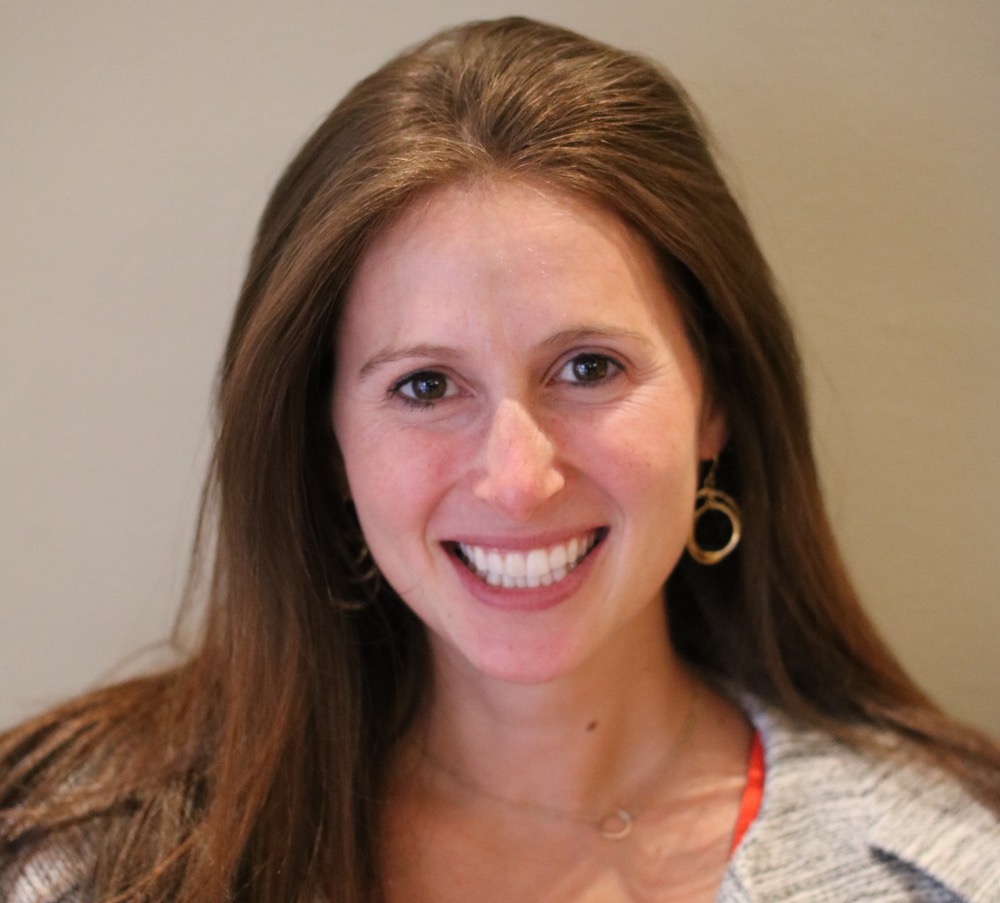
Sarabeth Berman is the CEO of the American Journalism Project (AJP), a venture philanthropy organization dedicated to local news. She most recently led global public affairs at the education nonprofit Teach For All, and lived and worked in China from 2006–2013. Before participating in a Zócalo/Center for Social Innovation event, “Can Local Media Restore Trust and Destroy Disinformation?,” she talked in the Zócalo green room about how to turn your decisions into the right decisions, the many newspapers her family subscribed to while she was growing up, and why she wants a “sleep bank.”
You began your career in performing arts; how have you been coping in its absence since the pandemic began?
I’ve been watching lots of virtual performances by the Mark Morris Dance Group. I’m on their board, and they’ve completely risen to the moment, and figured out how to do choreography remotely. It’s remarkable.
What food are you most likely to binge eat?
Chocolate. AJP sent a holiday bin of treats, and it came with chocolate-covered pretzels, which I devoured in minutes.
How do you decompress?
I run. I grew up dancing, so moving my body is the way that I decompress.
What do you miss about living in China?
The fact that on a Saturday, you could wake up and do your errands—go get your groceries, go pick up something that you needed at the store—and you would come back with extraordinary stories of encounters that you had and things you learned. I remember coming back to the U.S. and feeling that at the end of a Saturday, I had no stories. [In China,] every day was a feast for learning.
What superpower would you most like to have?
A sleep bank. You could sleep for 12 hours and then be fine for a couple days. To be able to not sleep when you’re busy and feel fine, and to sleep when you’re more relaxed, and it would all even out. I used to work for Wendy Kopp—she has four kids, and she built Teach For America and Teach For All, and she’s one of our country’s great social entrepreneurs—and my conclusion was her superpower was her ability to function incredibly well with very little sleep; she just had more hours than anyone else had.
What’s the best decision you’ve ever made?
My grandfather always said, “You make a decision, and then you make it the right one.” And I’m a big believer in that. But to answer more directly, I think the decision to go abroad right after college was transformative—a completely disorienting experience of going to China not speaking the language, not knowing the country well, and it ended up shaping my career fundamentally, shaping my personal life. I met my husband [New Yorker staff writer and Joe Biden biographer Evan Osnos] while living in China. It was a very good decision.
Were there any unexpected benefits to starting a job in the midst of the pandemic?
Zoom has really intimate qualities—you are in someone’s room or in their house. And there’s no travel—it’s really efficient. I’ve been able to get up to speed on all the people around this organization and around this work and this field very quickly because of it. I have two small kids, and I was wondering how, when I took this job, we were going to manage my travel life—and I’ve been able to put my kids to bed basically every single night in this job.
What newspapers did your family subscribe to while you were growing up?
We subscribed to the Boston Globe, New York Times, Wall Street Journal, Newton Tab—I grew up in Newton, Mass., outside Boston—and then we got tons of magazines: the New Yorker, TIME … In my dad’s library there was an entire shelf of National Geographics lined up. I can picture our breakfast table; my mom would have the Boston Globe open, my dad would have the New York Times open, and then they would switch.
Has the job changed your news consumption at all?
I now subscribe to every single one of our wonderful grantees, so I get a lot of information about places where I don’t live, like Wyoming through WyoFile, or Vermont, where VTDigger is doing an extraordinary job. So I’m getting much more exposure to the local places where we’re invested or we’re thinking about investing. And frankly, in a moment where there is a lot of national news, it’s really refreshing to read about what’s happening locally.



